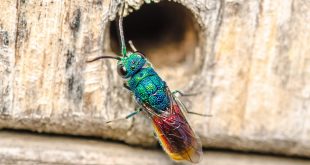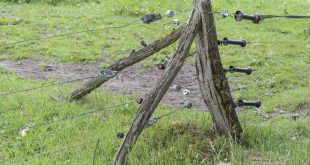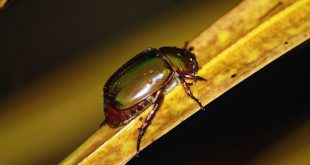If you are a beekeeper, then you might be wondering whether a frog can pose a serious risk to your bees or not. As you know honeybees are a major target of many predators that include birds, bears, skunks, raccoons, and many others. It may not have been apparent, but yes, frogs do eat bees. Let's discuss.
Read More »How to Protect Mason Bees from Wasps
If you would love to keep mason bees, then you have two options with regard to housing: DIY or buy commercial made mason bee homes. Irrespective of what you choose however, you will have to protect your mason bees from their natural predators, which include wasps. In this article we'll discuss different measures you can take to protect mason bees from wasps.
Read More »How to Build an Electric Fence for Bears
Electric fences are a sure way to ensure beehives in an apiary are not attacked by bears. Beekeepers avoid losses in beekeeping equipment and honeybee colonies by installing an electric fence around the apiary. Both beginner and experienced beekeepers can set up an electric fence to protect their beehives. You can build your own electric fence or buy one and assemble it. Putting one together with parts from different manufacturers allows you to customize the electric fence to your preferences. This article delves into how to build an electric fence for bears around an apiary. You can use it to protect one beehive or many.
Read More »An Introduction to Honey Bee Pests, Parasites and Predators
Every living animal in nature has an enemy. The honey bee is no exception. It has its share of pests, parasites and predators that attempt through every means possible to invade their territory. Humans have contributed greatly to the increase in honey bee pests and parasites. This has come about …
Read More » BeeKeepClub Resources and Guides for Beekeepers
BeeKeepClub Resources and Guides for Beekeepers




